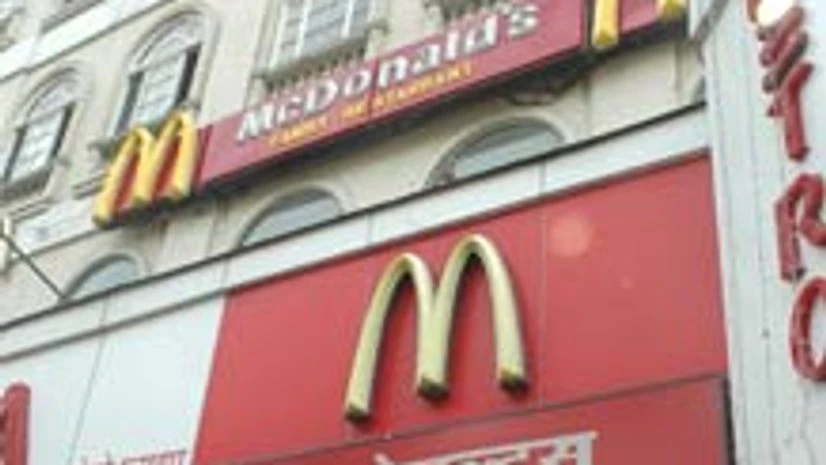In a bid to capitalise on the growth in the cafe market in India, the world's second-largest fast-food chain McDonald's will launch its McCafe brand on October 14 in Mumbai.
Hardcastle Restaurants, its franchisee for the south and west, will launch the first store in South Mumbai within its existing McDonald's outlet there. Worldwide, McCafe operates within McDonald's stores, with a separate section dedicated for the purpose. Typically, the seating and menu is different from the regular McDonald's.
A cappuchino at McCafe will start at Rs 90, while a frappe will cost Rs 110. While higher than customary McDonald's fare, which starts at Rs 25, the coffee is still priced lower than rival Starbucks, which begins at Rs 110 for a cappuchino.
More From This Section
Like Starbucks, McDonald's will source its coffee locally - from Chikmaglur in Karnataka - with Coca-Cola acting as the coffee bean supplier for the company.
Globally, McDonald's has 10,000 McCafes, with the company deriving significant revenues from the business. Coffee will be the third line extension for McDonald's in India after adding breakfast and dessert items in the last two years.
Jatia declined to give the break-up of revenues from McDonald's line extensions in the south and west - where it operates. But coffee is expected to become a significant vertical for it as consumers take advantage of the availability of both food & beverage at oultets. Up until now, consumers had to make do with carbonated soft drinks such as Coke if they frequented a McDonald's outlet. While Coca-Cola's Georgia Coffee was available at Big Mac stores, its pick-up, say retail industry experts, was not very high.
Hardcastle is expected to push McCafe products aggressively as it looks to broaden its beverage presence in stores to improve spending by consumers.
At Rs 1,000-crore, the coffee chain market in India is growing at a clip of about 30 per cent per annum. According to Saloni Nangia, president at Gurgaon-based retail consultancy Technopak Advisors, the top 40 cities in India, has about 1,700 outlets at the moment. "These cities can accommodate another 2,000 cafes in the next few years," she says.
This assumption is based on a simple math: India has been adding around 200 cafes per annum for the last five years, says Nangia. "If this pace of growth is maintained then 2,000 more cafes will see the light of day," she says. And given that all players have plans to expand their operations there is no reason why this number should not be achieved, she adds.
The Bangalore-headquartered Cafe Coffee Day, which is the largest coffee chain player in India with over 1,200 outlets, proposes to add 1,000 stores by 2014, taking up its store count to over 2,000.
Lavazza, owners of Barista, which has 154 outlets in India, proposes to get aggressive with its flagship format Expression in the country. Dunkin' Donuts has already set up 10 stores in Delhi-NCR, recently stepping into Chandigarh in neighbouring Punjab with one outlet there.
Starbucks, meanwhile, as already launched 21 stores in malls, high-street locations, airports, metro stations, commercial complexes in three cities. It is expected to keep this tempo going as it attempts to play catch up in India looking at newer retail formats such as hospitals, educational institutions and corporate campuses.

)
